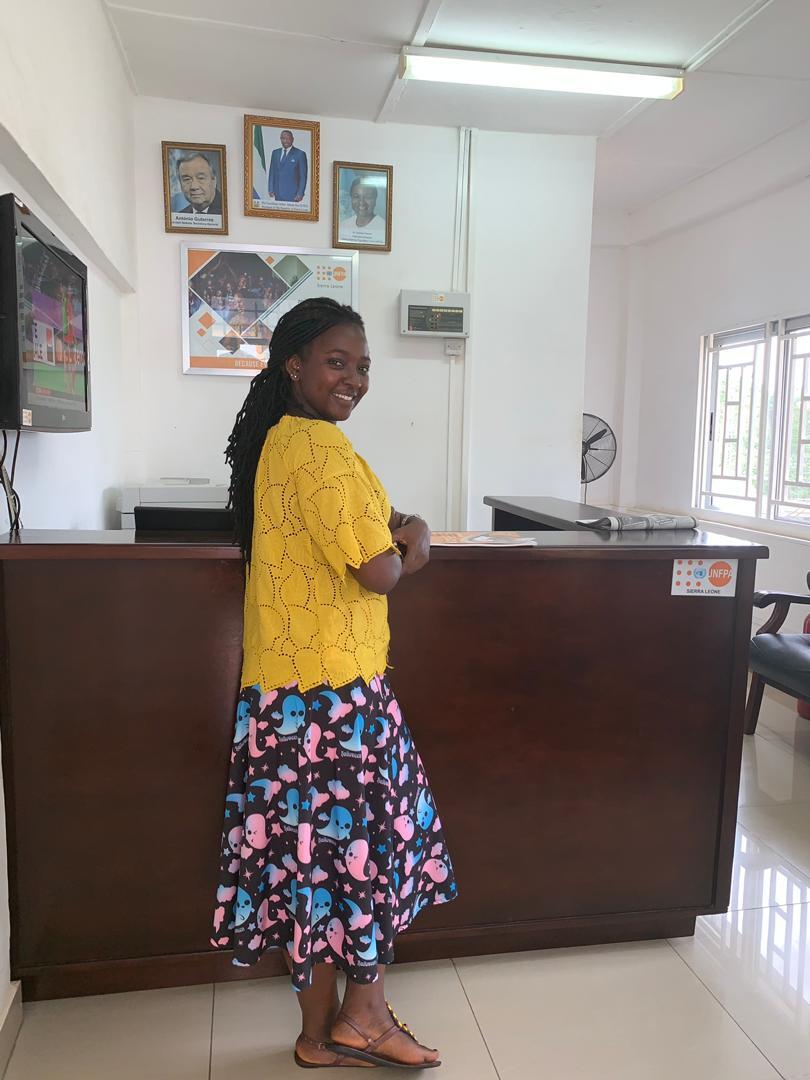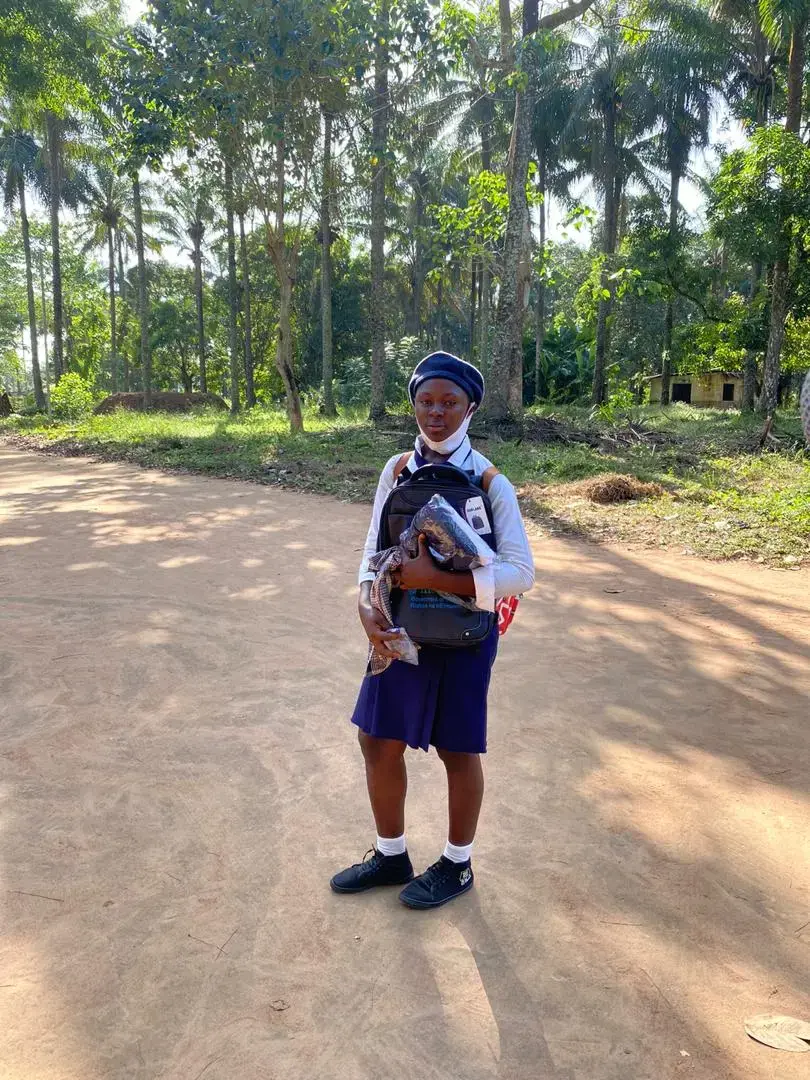“I have always been interested in volunteering and first heard about the National Youth Service Corps Volunteers in Nigeria and Kenya. I discovered in 2018, that a National Youth Service was set up in Sierra Leone, so I applied,” explained 26-year-old Ashmao originally from Koinadugu District.
After studying at Njala University in Freetown, the capital of Sierra Leone, and awarded a degree in Business and Information Technology, Ashmao worked for one year at West Africa Logistic Solutions as a documentation officer. She successfully applied for the National Youth Service as a volunteer and is currently on placement at UNFPA.
Approximately 70 percent of youth in Sierra Leone are underemployed or unemployed, and today an estimated 800,000 youth are actively searching for employment. A lack of skills and experience are cited as one of the main reasons. As a measure to reduce the high youth unemployment rate in Sierra Leone, the Ministry of Youth Affairs established the National Youth Service Scheme, which was launched by the Vice-President in September 2018. The scheme is designed to equip young graduates with the necessary skills and work experience to make them attractive to employers. UNFPA supported the scheme by providing sexual and reproductive health training for the first cohort of 200 national youth corps volunteers.
Training programme
According to Ashmao, the 21-day orientation and training programme taught her discipline, punctuality, and the ability to adapt to different scenarios. At the camp, she learned to work with other volunteers from different backgrounds on various exercises. After the training was completed, the volunteers are assigned to work placements in various sectors, including the private sector, government institutions and local and international non-governmental organisations.
Working at UNFPA
Whilst working at UNFPA, Ashmao’s daily duties consist of drafting responses to letters and emails; recording documentation sent to the office; liaising with colleagues from different teams, and working closely with the UNFPA country representatives and other senior staff members. “I’ve learnt a lot over the past 10 months,” said Ashmao. “I’ve especially enjoyed working on reception because I interact with different people and can help them in many ways. I worked with colleagues to digitalize the paper-based travel form so it’s more accessible for staff and this activity relates to my degree. I’m always kept busy,” smiled Ashmao.
Ashmao provides administrative support to programme staff by inputting information into the UNFPA-supported GATES Project (Girls’ Access to Education and Services) database on community learning centres and schools. She has been on field visits with colleagues to Tonkolili and Kambia districts to monitor programme implementation of the joint UNFPA-UNICEF Global Programme to Accelerate Action to End Child Marriage and UNFPA–supported Safe Spaces.
Speaking of the varied work activities, Ashmao said, “There’s been a number of UNFPA events which I’ve attended and supported, including the launch of the National Population Policy, the commissioning of Rokupa Hospital and the visit of the UNFPA Deputy Executive Director.”
Future plans
“At UNFPA, I’ve learned that volunteering is very important and can actually change your life. I think it is an opportunity to do things without expecting anything in return and can lead to other possibilities noted Ashmao. “In terms of my career development, I want to work in the area of information technology and gender equality. I want to continue advocating for equality for women and girls by engaging with key stakeholders at the grass roots level to make significant changes at the policy level,” added Ashmao.
***
For more information, please contact:
Angelique Reid, UNFPA Sierra Leone, Communications Specialist
Tel: +232 78340044 - Email: areid@unfpa.org




